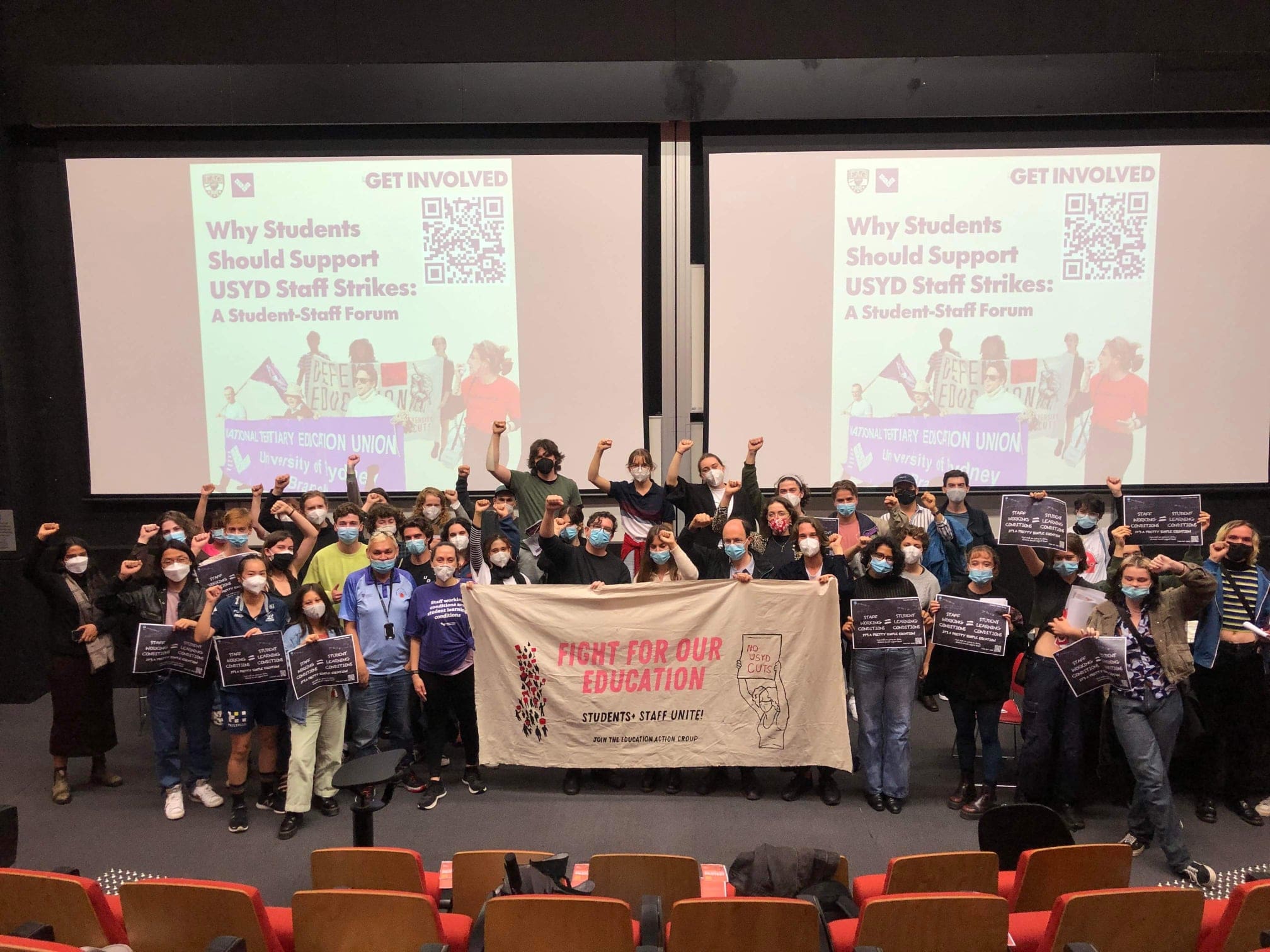Staff and students participated in an Education Action Group (EAG) and National Tertiary Education Union (NTEU) hosted forum early this afternoon discussing why students should support USyd staff strikes.
SRC Education Officer Deaglan Godwin and NTEU branch committee member Jennifer Huch-Hoogvliet co-chaired the forum. The panel consisted of NTEU branch president Nick Riemer, branch committee member Joel Griggs and SRC President Lauren Lancaster.
The forum’s discussion focused on what Griggs described as the “antagonistic interests” of university management compared to that of staff and students.
Griggs also identified a “decades long decline” in higher education. Adding that the “ideological assault” on universities by management and the government was the context which necessitates staff strikes.
Riemer emphasised that staff and students share the same interests as opposed to university management.
Lancaster agreed, pointing to examples of the connection between staff working conditions and student learning conditions. She cited last year’s Draft Change Proposal, along with a lack of one-on-one time with tutors and inadequate assignment feedback as examples of declining learning conditions that have simultaneously harmed staff.
The forum also discussed the University’s attacks on the 40/40/20 model, which sets the ratio of research, teaching and administration work staff are required to complete. These attacks include casualisation and the introduction of teaching-only positions.
Riemer reminded students of the pitfalls of “the people in front of you being teaching drones… not at the cutting edge” of their fields. He also identified the impossibly demanding marking quotas that lead to diminished assignment feedback quality for students and creating unpaid time spent at work for markers.
The panel agreed that student solidarity is important to the success of staff strikes, with Riemer saying: “We’re stuffed without you”.
He further said that “there has not been a single significant staff movement that has succeeded without the mass support of students.”
Lancaster argued that the importance of solidarity with staff was more important than “the minor inconvenience” of missing class.
A participant speaking from the floor also noted that online learning could make crossing the picket line easier for students and urged attendees to call out their peers for doing so.
The forum also touched on the societal importance of the strikes, with Huch-Hoogvliet stating that it “is important that we set an example”, given the leading national role of the USyd NTEU branch.
Riemer, Lancaster and Godwin further emphasised the importance of universities as a means of collective intellectual growth, with Riemer describing them as a “nodal link” to the workforce and activism more generally.
“How universities are controlled is a matter of fundamental importance”, he said.
Riemer also condemned the university’s “passive enabl[ing] of neoliberalism”.
The panel argued that staff strikes take place within a broader climate in which radical activism is necessary.
Riemer claimed “we need to raise the tempo of struggle” society-wide and argued that the strikes held recently by nurses, teachers, and transport workers contributed to this broader struggle.
Education activist Yasmine Johnson spoke from the floor about how such strikes are “about standing up” for staff, with professional and administrative staff heralded as important to the movement.
NTEU Casuals Representative Dani Cotton added the importance of casual workers’ rights from the floor.
The NTEU’s demands for annualised gender affirmation leave and quotas for Indigenous employment received comparatively little attention, each only being referenced once in the hour.
Panel members encouraged staff members to vote ‘yes’ in the protected action ballot, open until 12 April.
Student attendees were encouraged to attend the National Day of Action held by the National Union of Students and NTEU on 13 April, where staff and students will continue their campaign in support of staff strikes.





